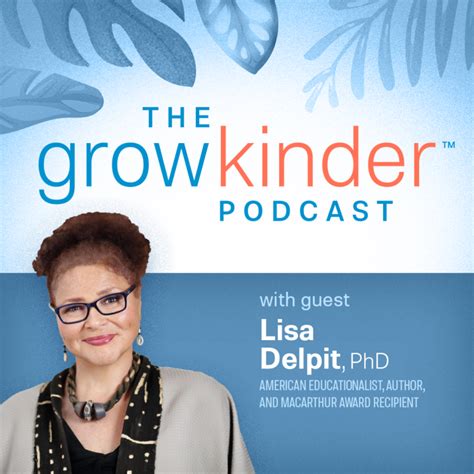A Quote by Lisa Delpit
We do not really see through our eyes or hear through our ears, but through our beliefs.
Related Quotes
We do not really see through our eyes or hear through our ears, but through our beliefs. To put our beliefs on hold is to cease to exist as ourselves for a moment -- and that is not easy ... but it is the only way to learn what it might feel like to be someone else and the only way to start the dialogue.
That is another theme in the book [Dreams from My Father]. How do we exercise more empathy in our public discourse? How do we get the black to see through the eyes of the white? Or the citizen to see through the eyes of the immigrant? Or the straight to see through the eyes of the gay? That has always been a struggle in our politics.
It’s not the body that people love, but the soul. The body is a temporary vehicle. Without the soul, the body is like a car without a driver. I see through my eyes, smell through my nose, taste through my tongue, hear through my ears, feel through my skin, think through my brain, and love through my heart. But who am I? Who is the witness, enjoyer and sufferer that activates my body?
Through our perceptual systems, we represent our surroundings, aiming to do so accurately, where the aiming is functional or teleological, rather than intentional. And the same goes for our functional beliefs. Through our judgments, however, we do intentionally, even consciously, attempt to get it right.
The most important thing you can learn as CEO- one of the hardest things to do is, you have to discipline yourself to see your company... through the eyes of the people that you're working through. Through the eyes of the employees, through the eyes of your partners... through the eyes of the people who you're not talking to and who are not in the room.
Remember, folks, every one of these Republicans in Senate sees the world through the eyes of the left. Every one of these Washington people. They don't see it through the prism of their own principles and beliefs. They see the world through the eyes of the left. They see the media criticism that will be forthcoming. They see the newspaper headlines. They see what's gonna be said about them on CNN and New York Times. That's what they see. That's their world.
I believe in empathy. I believe in the kind of empathy that is created through imagination and through intimate, personal relationships. I am a writer and a teacher, so much of my time is spent interpreting stories and connecting to other individuals. It is the urge to know more about ourselves and others that creates empathy. Through imagination and our desire for rapport, we transcend our limitations, freshen our eyes, and are able to look at ourselves and the world through a new and alternative lens.
It is through our technology that we have been able to fly far away from earth to learn, in truth, how precious it is. It is no coincidence that our awakening to the special nature of our world and to its uniquely balanced environment and its limitations coincided with our first glimpse of earth from outer space, through the eyes of astronauts, television cameras and photographic equipment.








































